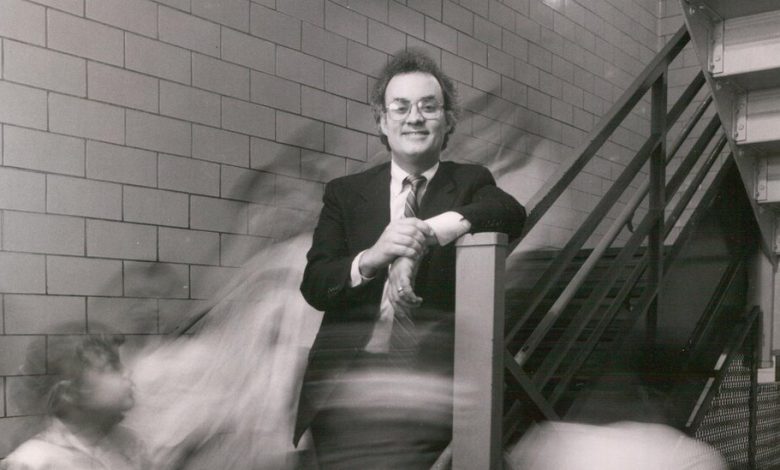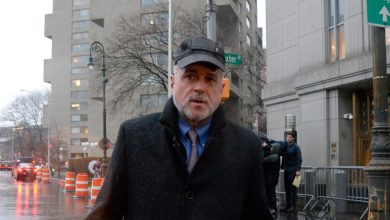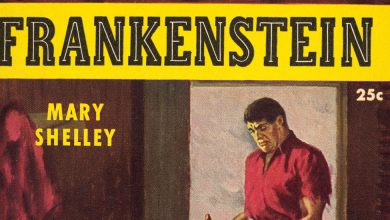Anthony J. Alvarado, Former New York City Schools Chancellor, Dies at 81

Anthony J. Alvarado, a successful educator who served as New York City’s first Hispanic schools chancellor, but whose tenure was cut short when he resigned over personal financial improprieties, died on Monday at his home in Coronado, Calif. He was 81.
The cause was complications of blood cancer and pneumonia, his wife, Elaine Fink, said.
Mr. Alvarado was the innovative 40-year-old superintendent of an East Harlem school district in 1983 when he emerged from a fractious selection process to lead the nation’s largest school system, succeeding Frank J. Macchiarola. As the first Hispanic educator to hold the city’s top schools post, he generated immense pride in the Hispanic community. (The city has had several Hispanic schools chancellors since then.)
Mr. Alvarado was an apostle for training teachers more rigorously and for raising the expectation of success for pupils and teachers alike. And while his tenure as schools chancellor was abridged, he was lauded nationally for his success in improving student performance in two Manhattan districts and, later, for trying to replicate those accomplishments in San Diego, where he was chancellor for instruction.
“Adults are responsible for the failure of kids,” he said in 2005 in an interview with Hedrick Smith, the host of the PBS program “Making Schools Work.”
“What has tended to happen in American public schooling with poor kids, and particularly with poor kids of color,” he added, “is that when they haven’t learned, the variables are poverty, the lack of parenting, difficult community circumstances, socioeconomic status and on and on and on. And interestingly enough, it never circled back to the teacher or the school. And therefore it let us off the hook.”
He told The New York Times in 2004, “To teach children effectively, you must teach teachers effectively — and constantly — about how to teach children effectively.”
As chancellor, Mr. Alvarado introduced full-day kindergarten classes and, among other innovations, started a pilot program of individual counseling for students in the upper grades to reduce the system’s 49 percent dropout rate.
But his agenda was undone by his personal financial problems, which came to light through what would have otherwise been the unremarkable gun arrest of an aide who had lent him money.
On Feb. 27, 1984, John Chin, a midlevel school board official on Mr. Alvarado’s staff, was charged with firing a gun three times through a neighbor’s window on West 95th Street in Manhattan (for reasons still unknown). In Mr. Chin’s safe, investigators discovered two uncashed checks, totaling about $10,000, made out to him by Mr. Alvarado as repayment for personal loans.
Mr. Alvarado eventually acknowledged that his tangled personal finances — stretched further because he was supporting two daughters from his first marriage — included some $80,000 in loans he had received from subordinates, among other questionable transactions.
The revelation provoked skirmishes between the Board of Education and City Hall and stoked the embers of a heated process that had led to Mr. Alvarado’s appointment in 1983, when he was among four finalists for the job.
After having served one year and nine days in the post, Mr. Alvarado resigned in May 1984 on the eve of a Board of Education hearing into charges by the city’s Department of Investigation that he had “demonstrated serious lack of judgment and created a strong appearance of impropriety” in accepting loans from subordinates.
He admitted in a resignation statement to what he called “horrendous” judgment, but he insisted that he had “never used public funds or the public system for personal gain.” No criminal charges were ever filed.
Mr. Alvarado was succeeded by Nathan Quinones, who was also Hispanic, as are others who went on to hold that post, including Joseph A. Fernandez, Ramón C. Cortines, Carmen Fariña and Richard A. Carranza.
Earlier, as superintendent of District 4 in East Harlem from 1973 to 1983, Mr. Alvarado established mini-schools devoted to particular subjects, attracting students from elsewhere in the city to one of its poorest neighborhoods.
The process was not always smooth. He exceeded his annual budget more than once. And a white principal in the district who had been replaced by a Hispanic one contended that he was a victim of discrimination and was reinstated.
But Mr. Alvarado oversaw a poor, mostly Black and Hispanic district in which the number of children who could read at or above grade level in the district rose to 48 percent in 1982, from 25 percent in 1979. Its rank in reading scores among the city’s 32 community districts rose to 15th from 32nd.
After he resigned as chancellor, Mr. Alvarado felt vindicated professionally when he was hired in 1987 to be superintendent of District 2 in Manhattan, which stretched from Chinatown to the Upper East Side.
Again he invested in training teachers. He recruited experts from New Zealand and Australia, the two English-speaking nations with the highest literacy rates. He held principals accountable not just as school managers but also as instructional paragons, and he slashed the district’s central staff. Reading scores rose, and some middle-class families that had other options returned to the district’s public schools.
At the same time, he won the collaboration of the teachers’ union. Albert Shanker, president of the American Federation of Teachers, was quoted by Time magazine in 1984 as saying, “Alvarado’s plans and actions reflected a real educator’s concern for the schools.”
In 1998, after running District 2 for 11 years, Mr. Alvarado was recruited to be chancellor of instruction, the No. 2 position, for the San Diego school district. There he instituted coaching for teachers and increased student instruction in reading and writing. But he was viewed as an assertive outsider by many in the city, and he became a lightning rod for opposition to most reforms.
He was later a professor of education at Stanford University in Palo Alto, Calif., and served on the board of Educational Testing Service, the nonprofit organization that develops and administers standardized tests.
Describing Mr. Alvarado as “a dynamic and incredibly creative educational leader,” Michael A. Rebell, executive director of the Center for Education Equity and a professor at Teachers College, Columbia University, said in a telephone interview: “He not only had important, innovative ideas, but he also was able to implement them. He was an inspirational force who turned things around in two community school districts.”
Anthony John Alvarado was born on June 10, 1942, in New York and raised in the South Bronx. His father, Juan Alvarado, a Cuban immigrant, was the manager of a dress factory. His mother, Victoria (Davila) Alvarado, who was born in Puerto Rico, was a homemaker.
After graduating from Fordham Preparatory School in the Bronx, Mr. Alvarado received a bachelor’s degree in English from Fordham University in 1960, followed by a master’s in the same subject, also from Fordham.
He began teaching English in New York City’s public schools in 1965, first as a substitute teacher and then for a year at James Monroe High School in the Bronx. He was named to several administrative posts at the Board of Education’s Brooklyn headquarter before becoming superintendent of District 4, a predominantly Black and Hispanic area, in 1973.
In addition to his wife, Ms. Fink, Mr. Alvarado is survived by two daughters from his first marriage, Maria and Gloria Alvarado; two from his second marriage, to Ellen Kirshbaum, Rachel Moreno and Emily Alvarado; nine grandchildren; and a great-grandson.
As a district superintendent and chancellor, Mr. Alvarado fearlessly challenged a bureaucracy that, he said, had constrained individual initiative.
“There is always the question, Can the octopus so enmesh you that there will always be an arm around you, tugging you from the direction you want to go?” he said when he was appointed chancellor in 1983.
“The octopus is the system, the bureaucracy,” he added. “I’ll walk around with a pair of shears in my back pocket. Whenever I see a tentacle, I’ll take it out.”





